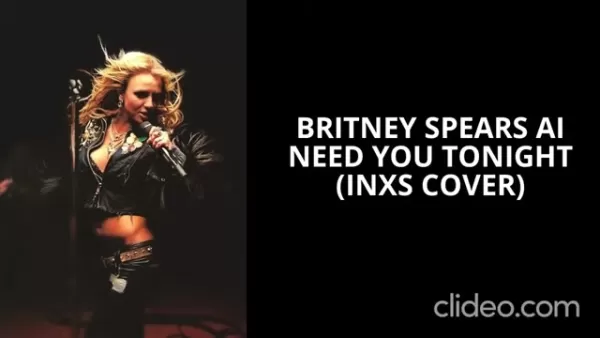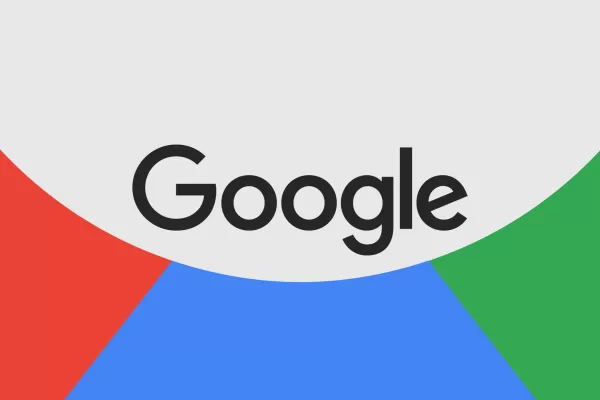AI-Generated Britney Spears Cover of INXS Classic Ignites Nostalgia and Debate
In a striking fusion of technology and nostalgia, artificial intelligence has crafted a captivating rendition of Britney Spears performing INXS's timeless hit, 'Need You Tonight.' This innovative blend of pop and rock reimagines a beloved classic, sparking widespread online buzz and discussion. The AI-driven cover highlights the growing potential of technology in music, reshaping how we view creativity and artistry in the digital era. Whether you're drawn to Britney's pop legacy, INXS's rock roots, or the cutting-edge world of AI music, this track is a must-hear.
Key Highlights
AI recreates Britney Spears' voice for a bold INXS cover.
The track merges nostalgic vibes with groundbreaking innovation.
AI's influence in music production is expanding rapidly.
This cover fuels debates about AI's role in creative arts.
The song is available for streaming and sharing online.
Blending a pop icon with a rock anthem via AI creates a unique draw.
AI-Powered Britney Spears Takes on INXS
An Unexpected Fusion
The concept of an AI-generated Britney Spears covering INXS is bold and unconventional. 'Need You Tonight,' a defining rock anthem, contrasts sharply with Britney's pop persona, creating a compelling musical clash. This unique pairing captivates listeners, bridging different eras and genres for a fresh, engaging experience.

This surprising blend showcases AI's ability to fuse distinct artistic styles into something novel and attention-grabbing.
Fans of Britney Spears and INXS alike find appeal in this AI-crafted cover. The iconic 'Need You Tonight' gains new life with vocals echoing Britney's signature style, offering a mix of familiarity and innovation. This fusion transcends sound, representing a collision of musical worlds through artificial intelligence.
The track's appeal spans multiple audiences:
- For Britney fans, it’s a chance to hear her 'voice' in an unexpected context.
- For INXS lovers, it’s a bold reimagining of a cherished classic.
- For AI enthusiasts, it’s a showcase of technology’s creative potential in music.
The cover’s originality is undeniable, serving as a powerful example of AI pushing the boundaries of artistic expression, even if its lasting impact remains to be seen.
AI’s Growing Influence in Music
The AI-generated Britney Spears cover of 'Need You Tonight' is more than a novelty—it’s a glimpse into the future of music. Artificial intelligence is revolutionizing the industry, offering new tools for creation, production, and distribution. From composing melodies to mimicking iconic voices, AI’s capabilities are vast and evolving.
AI brings several benefits:
- Speed: AI streamlines music production, saving time and resources.
- Innovation: It enables artists to experiment with new sounds and styles.
- Inclusivity: AI tools empower independent creators with accessible technology.
Yet, AI’s rise sparks critical questions about authorship, copyright, and artistic value. Who owns an AI-generated song? Can mimicking an artist’s voice infringe on their rights? These legal and ethical challenges are reshaping the music industry.
Concerns also arise about AI potentially overshadowing human creativity. Could AI-generated music oversaturate the market, making it harder for human artists to stand out? Or will AI amplify human ingenuity, unlocking new creative heights? The debate continues, but AI’s transformative role in music is undeniable.
Inside AI Music Creation
How AI Crafts Music
Exploring the mechanics of AI music generation reveals its possibilities and limits. AI models are trained on extensive datasets, including audio tracks, MIDI files, and sheet music, to identify patterns, structures, and styles.
Key AI techniques include:
- Neural Networks: These models learn intricate musical relationships to create new compositions.
- Recurrent Neural Networks (RNNs): Ideal for sequential data, they maintain musical coherence by recalling prior notes and rhythms.
- Generative Adversarial Networks (GANs): A generator creates music, refined by a discriminator that ensures quality.
For the Britney Spears cover, AI likely used voice cloning or synthesis. Voice cloning trains models on Britney’s vocal recordings to replicate her unique tone and style. Synthesis, meanwhile, builds voices from scratch, leveraging acoustic and speech pattern knowledge to sing any text. While AI music is technically impressive, it often lacks the emotional depth of human work, though advancements are closing this gap.
AI Music: Benefits and Challenges
Advantages
Streamlined music production processes.
Expanded opportunities for creative experimentation.
Accessible tools for independent artists.
Personalized music experiences for listeners.
Reduced costs in specific production areas.
Challenges
Ethical dilemmas around authorship and copyright.
Risks of misuse, such as creating deceptive deepfakes.
Potential to overshadow human creativity.
Limited emotional depth compared to human music.
Concerns about job displacement for musicians and producers.
Frequently Asked Questions
Is this an official Britney Spears track?
No, this is an AI-generated cover, not an official Britney Spears recording, mimicking her vocal style.
Where can I hear this AI cover?
Find the track on platforms like YouTube, SoundCloud, or possibly Spotify. Search 'Britney Spears AI Need You Tonight' to locate it, or check social media like TikTok and Instagram.
Are there other AI covers in Britney Spears’ style?
AI-generated covers in Britney’s style are growing, including songs by other artists and original works performed in her vocal style.
What are the legal concerns of AI mimicking an artist’s voice?
Legal issues include copyright, right of publicity, and trademark concerns. AI music creators must navigate these to avoid infringing on artists’ rights, as laws evolve to address these complexities.
Can AI fully replace human musicians?
AI is unlikely to replace human artists entirely, as music reflects human emotion and experience, which AI struggles to replicate fully. Instead, AI serves as a tool to enhance creativity, streamline production, and explore new sounds.
Related Insights
How is AI transforming the music industry?
Artificial intelligence is reshaping music creation, production, and consumption. AI composes melodies, automates mixing and mastering, and personalizes recommendations, enhancing efficiency and accessibility. However, challenges like copyright and artistic integrity persist, pointing to a future where AI and human creativity collaborate.
What ethical issues arise from AI mimicking voices?
AI voice mimicry raises concerns about misinformation, copyright infringement, and artists’ rights to their likeness. Transparency, fair compensation, and protecting human creativity are critical as AI advances, requiring ongoing dialogue to balance innovation and ethics.
Related article
 AI Transforms Education: How Artificial Intelligence Enhances Student Learning
The education sector is undergoing a profound transformation as artificial intelligence becomes increasingly integrated into learning environments. AI technologies are revolutionizing teaching methodologies, personalizing student experiences, and str
AI Transforms Education: How Artificial Intelligence Enhances Student Learning
The education sector is undergoing a profound transformation as artificial intelligence becomes increasingly integrated into learning environments. AI technologies are revolutionizing teaching methodologies, personalizing student experiences, and str
 Google Denies AI Search is Harming the Web's Integrity
Google Defends AI Search Features Amid Traffic ConcernsGoogle maintains its AI-powered search enhancements haven't negatively impacted overall website traffic, despite emerging reports suggesting otherwise. Liz Reid, Head of Google Search, explained
Google Denies AI Search is Harming the Web's Integrity
Google Defends AI Search Features Amid Traffic ConcernsGoogle maintains its AI-powered search enhancements haven't negatively impacted overall website traffic, despite emerging reports suggesting otherwise. Liz Reid, Head of Google Search, explained
 Amazon hits milestone with one million robots deployed, launches new generative AI model
Amazon Reaches Robot Workforce Milestone in WarehousesAfter thirteen years of robotic integration, Amazon has achieved a significant automation breakthrough. The e-commerce giant confirmed it now operates one million robots across its global warehous
Comments (2)
0/200
Amazon hits milestone with one million robots deployed, launches new generative AI model
Amazon Reaches Robot Workforce Milestone in WarehousesAfter thirteen years of robotic integration, Amazon has achieved a significant automation breakthrough. The e-commerce giant confirmed it now operates one million robots across its global warehous
Comments (2)
0/200
![WillMitchell]() WillMitchell
WillMitchell
 September 10, 2025 at 12:30:35 AM EDT
September 10, 2025 at 12:30:35 AM EDT
Qué locura escuchar a Britney cantando INXS así 😳 La IA está llevando los covers a otro nivel, pero me preocupa cómo afectará esto a los derechos de los artistas originales. ¿Dónde está el límite?


 0
0
![ScottJackson]() ScottJackson
ScottJackson
 August 6, 2025 at 12:01:28 AM EDT
August 6, 2025 at 12:01:28 AM EDT
This AI Britney cover of INXS is wild! Sounds so real, but is it cool or just creepy? Nostalgia's hitting hard! 😎


 0
0
In a striking fusion of technology and nostalgia, artificial intelligence has crafted a captivating rendition of Britney Spears performing INXS's timeless hit, 'Need You Tonight.' This innovative blend of pop and rock reimagines a beloved classic, sparking widespread online buzz and discussion. The AI-driven cover highlights the growing potential of technology in music, reshaping how we view creativity and artistry in the digital era. Whether you're drawn to Britney's pop legacy, INXS's rock roots, or the cutting-edge world of AI music, this track is a must-hear.
Key Highlights
AI recreates Britney Spears' voice for a bold INXS cover.
The track merges nostalgic vibes with groundbreaking innovation.
AI's influence in music production is expanding rapidly.
This cover fuels debates about AI's role in creative arts.
The song is available for streaming and sharing online.
Blending a pop icon with a rock anthem via AI creates a unique draw.
AI-Powered Britney Spears Takes on INXS
An Unexpected Fusion
The concept of an AI-generated Britney Spears covering INXS is bold and unconventional. 'Need You Tonight,' a defining rock anthem, contrasts sharply with Britney's pop persona, creating a compelling musical clash. This unique pairing captivates listeners, bridging different eras and genres for a fresh, engaging experience.

This surprising blend showcases AI's ability to fuse distinct artistic styles into something novel and attention-grabbing.
Fans of Britney Spears and INXS alike find appeal in this AI-crafted cover. The iconic 'Need You Tonight' gains new life with vocals echoing Britney's signature style, offering a mix of familiarity and innovation. This fusion transcends sound, representing a collision of musical worlds through artificial intelligence.
The track's appeal spans multiple audiences:
- For Britney fans, it’s a chance to hear her 'voice' in an unexpected context.
- For INXS lovers, it’s a bold reimagining of a cherished classic.
- For AI enthusiasts, it’s a showcase of technology’s creative potential in music.
The cover’s originality is undeniable, serving as a powerful example of AI pushing the boundaries of artistic expression, even if its lasting impact remains to be seen.
AI’s Growing Influence in Music
The AI-generated Britney Spears cover of 'Need You Tonight' is more than a novelty—it’s a glimpse into the future of music. Artificial intelligence is revolutionizing the industry, offering new tools for creation, production, and distribution. From composing melodies to mimicking iconic voices, AI’s capabilities are vast and evolving.
AI brings several benefits:
- Speed: AI streamlines music production, saving time and resources.
- Innovation: It enables artists to experiment with new sounds and styles.
- Inclusivity: AI tools empower independent creators with accessible technology.
Yet, AI’s rise sparks critical questions about authorship, copyright, and artistic value. Who owns an AI-generated song? Can mimicking an artist’s voice infringe on their rights? These legal and ethical challenges are reshaping the music industry.
Concerns also arise about AI potentially overshadowing human creativity. Could AI-generated music oversaturate the market, making it harder for human artists to stand out? Or will AI amplify human ingenuity, unlocking new creative heights? The debate continues, but AI’s transformative role in music is undeniable.
Inside AI Music Creation
How AI Crafts Music
Exploring the mechanics of AI music generation reveals its possibilities and limits. AI models are trained on extensive datasets, including audio tracks, MIDI files, and sheet music, to identify patterns, structures, and styles.
Key AI techniques include:
- Neural Networks: These models learn intricate musical relationships to create new compositions.
- Recurrent Neural Networks (RNNs): Ideal for sequential data, they maintain musical coherence by recalling prior notes and rhythms.
- Generative Adversarial Networks (GANs): A generator creates music, refined by a discriminator that ensures quality.
For the Britney Spears cover, AI likely used voice cloning or synthesis. Voice cloning trains models on Britney’s vocal recordings to replicate her unique tone and style. Synthesis, meanwhile, builds voices from scratch, leveraging acoustic and speech pattern knowledge to sing any text. While AI music is technically impressive, it often lacks the emotional depth of human work, though advancements are closing this gap.
AI Music: Benefits and Challenges
Advantages
Streamlined music production processes.
Expanded opportunities for creative experimentation.
Accessible tools for independent artists.
Personalized music experiences for listeners.
Reduced costs in specific production areas.
Challenges
Ethical dilemmas around authorship and copyright.
Risks of misuse, such as creating deceptive deepfakes.
Potential to overshadow human creativity.
Limited emotional depth compared to human music.
Concerns about job displacement for musicians and producers.
Frequently Asked Questions
Is this an official Britney Spears track?
No, this is an AI-generated cover, not an official Britney Spears recording, mimicking her vocal style.
Where can I hear this AI cover?
Find the track on platforms like YouTube, SoundCloud, or possibly Spotify. Search 'Britney Spears AI Need You Tonight' to locate it, or check social media like TikTok and Instagram.
Are there other AI covers in Britney Spears’ style?
AI-generated covers in Britney’s style are growing, including songs by other artists and original works performed in her vocal style.
What are the legal concerns of AI mimicking an artist’s voice?
Legal issues include copyright, right of publicity, and trademark concerns. AI music creators must navigate these to avoid infringing on artists’ rights, as laws evolve to address these complexities.
Can AI fully replace human musicians?
AI is unlikely to replace human artists entirely, as music reflects human emotion and experience, which AI struggles to replicate fully. Instead, AI serves as a tool to enhance creativity, streamline production, and explore new sounds.
Related Insights
How is AI transforming the music industry?
Artificial intelligence is reshaping music creation, production, and consumption. AI composes melodies, automates mixing and mastering, and personalizes recommendations, enhancing efficiency and accessibility. However, challenges like copyright and artistic integrity persist, pointing to a future where AI and human creativity collaborate.
What ethical issues arise from AI mimicking voices?
AI voice mimicry raises concerns about misinformation, copyright infringement, and artists’ rights to their likeness. Transparency, fair compensation, and protecting human creativity are critical as AI advances, requiring ongoing dialogue to balance innovation and ethics.
 AI Transforms Education: How Artificial Intelligence Enhances Student Learning
The education sector is undergoing a profound transformation as artificial intelligence becomes increasingly integrated into learning environments. AI technologies are revolutionizing teaching methodologies, personalizing student experiences, and str
AI Transforms Education: How Artificial Intelligence Enhances Student Learning
The education sector is undergoing a profound transformation as artificial intelligence becomes increasingly integrated into learning environments. AI technologies are revolutionizing teaching methodologies, personalizing student experiences, and str
 Google Denies AI Search is Harming the Web's Integrity
Google Defends AI Search Features Amid Traffic ConcernsGoogle maintains its AI-powered search enhancements haven't negatively impacted overall website traffic, despite emerging reports suggesting otherwise. Liz Reid, Head of Google Search, explained
Google Denies AI Search is Harming the Web's Integrity
Google Defends AI Search Features Amid Traffic ConcernsGoogle maintains its AI-powered search enhancements haven't negatively impacted overall website traffic, despite emerging reports suggesting otherwise. Liz Reid, Head of Google Search, explained
 September 10, 2025 at 12:30:35 AM EDT
September 10, 2025 at 12:30:35 AM EDT
Qué locura escuchar a Britney cantando INXS así 😳 La IA está llevando los covers a otro nivel, pero me preocupa cómo afectará esto a los derechos de los artistas originales. ¿Dónde está el límite?


 0
0
 August 6, 2025 at 12:01:28 AM EDT
August 6, 2025 at 12:01:28 AM EDT
This AI Britney cover of INXS is wild! Sounds so real, but is it cool or just creepy? Nostalgia's hitting hard! 😎


 0
0





























